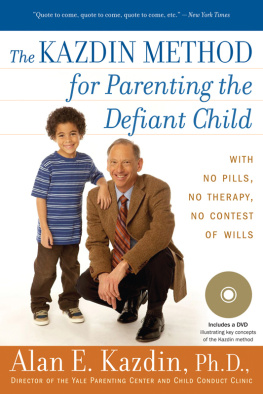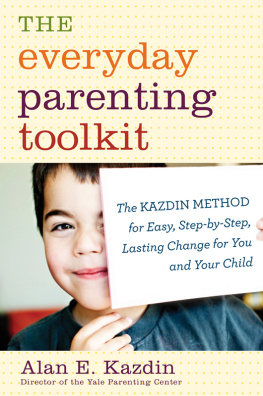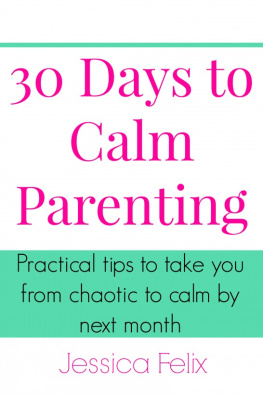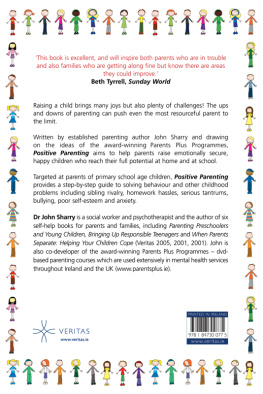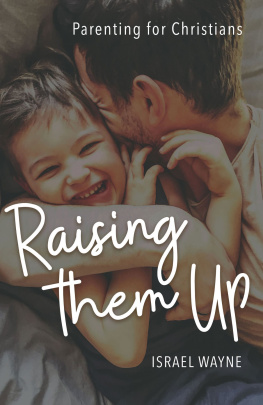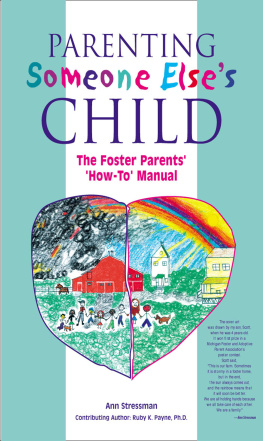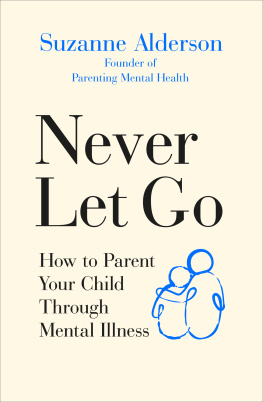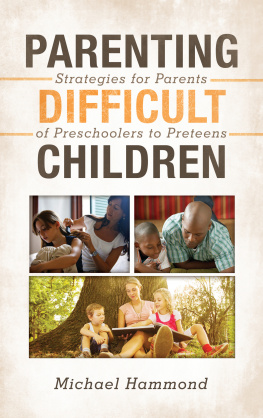First Mariner Books edition 2014
Copyright 2013 by Alan E. Kazdin and Carlo Rotella
All rights reserved
For information about permission to reproduce selections from this book, write to or to Permissions, Houghton Mifflin Harcourt Publishing Company, 3 Park Avenue, 19th Floor, New York, New York 10016.
www.hmhco.com
The Library of Congress has cataloged the print edition as follows:
Kazdin, Alan E.
Everyday parenting toolkit : the Kazdin method for easy, step-by-step, lasting change for you and your child / Alan E. Kazdin.
p. cm.
ISBN 978-0-547-98554-1 ISBN 978-0-544-22782-8 (pbk.)
1. Child rearing. 2. Parenting. I. Title.
HQ769 .K345 2013
649'.64dc23
[B]
2012537349
Cover design by Martha Kennedy
Cover photograph mum photography/Getty Images
e ISBN 978-0-547-98561-9
v3.0616
Acknowledgments
We would like to thank our children for all they have taught us, and we would like to thank the many parents we have encountered whose dedication to child rearing has been an inspiration and an example.
Introduction
A lot of people associate the word science with cold, remote abstractions, the opposite of your relationship to your kids. But scientists who investigate parenting and child rearing are finding out all kinds of things that can make family life not only easier for parents and children but also warmer, closer, and happier. In psychology and related fields, researchers are studying everything from the most effective way to ask your child to do something (the way thats most likely to lead to the child doing it) to how and why parents punish so much even though it doesnt work very well. The body of good research produced by these scientists grows more robust and useful every day. Their findings confirm some instinctive parental habits. For instance, research on the effects of comforting touch is telling us more and more about how good for your kids it is, not just psychologically but biologically, to be hugged by you. When you follow the urge to hug your child frequently, the likely good effects include not only reducing stress and promoting bonding and attachment but also strengthening the childs immune system. The research also shows why other ingrained parental habits make life only more difficult for adults and children alike. Take nagging, for example. We (I say we because Im a parent, too) tend to act as if repeatedly reminding a child to do something makes the child more likely to do it, but the science clearly shows that the opposite is true: more reminders equals less chance of compliance.
Theres good science out there, and parents need it more than ever. Theyre pulled in more directions than ever before and get less help than ever from other adults. They have less time with their families because of the normalizing of the two-career couple (or, for that matter, the three-job or four-job couple) and the technology-assisted expansion of work to fill even the smallest gaps in the day, so that parents are never beyond the reach of e-mails or text messages that draw them away from family time and back to work. There are also more single parents than ever before: in the United States, 41 percent of births are to an unmarried parent, and many parents are raising kids largely alone because of divorce. More grandparents have primary responsibility for rearing children, and there are more blended families in which different approaches to raising children can come into conflict. And, crucially, parents are increasingly isolated, cut off from the support systems and sources of advice that have traditionally helped with child rearing, such as neighbors and grandparents.
That all translates into more and different kinds of stress on parents. You try mightily not to pass this stress on to your kids, but its effects can sneak up on you. Take, for example, that typical twenty-first-century mini-storm in which you get an emergency text message from the office and then your toddler melts down or your preteen goes into attitude overdrive. Just my luck, you may think. This is the last thing I need right now. Its natural to think of the simultaneous onset of work-related and family-related crises as a coincidencebad parental luckbut theyre often deeply connected. A number of studies show in detail how stressors on parents modify how they interact with their children, often in ways that increase noncompliance. When a parent is under stress, especially when stress is made worse by isolation, the effects can be measured by changes in tone of voice, the quality of prompts to children, patience, and the ability to pay attention to a childall of which can make a child more difficult to manage. Just a little more edge in your voice, just a little more or less slack in reaction time can make the difference between a child doing whats asked of him and pitching a fit. And, of course, a difficult child is another stressor, which in turn stretches and isolates the parent even further, and the whole cycle goes around faster and faster.
Feeling on their own and in need of support, parents increasingly turn to our ages principal substitute for community and extended family: the Internet. Studies show (yes, somebodys studying this) that parents go online for advice more than they go to their own parents or to others who are raising children of the same age. And there is indeed some useful information to be had online if you know where to look. The problem is that much of it is not presented in a way to make it useful to nonscientists, and, more important, even the best advice is buried in an electronic infinity of bad advice, bad science or anti-science, and confident admonitions to do things that wont work and may well make your life worse: talking your childs tantrums to death, for instance, or whupping the badness out of your child, or using time out for hours until your child learns her lesson. It can be difficult to tell the good advice apart from the bad, especially when youre not an expert and in a hurry. And you probably are in a hurry, especially these days.
I direct the Yale Parenting Center, a service for families at Yale University that works with parents who want help with their children. Families in nearby cities and states come to the center for face-to-face sessions, and through our online setup we work with others from across the nation and in other countries. We see all kinds of kids and parents, all sorts of situations and problems, including some very extreme ones, but typically we focus on families that are dealing with the common challenges of child rearing. Sometimes these parents need a little help to get them through a rough patch, a childs particularly challenging developmental stage, or a sticky situationof which weve seen all kinds, including a lot of out-of-control tantrums, teasing and fighting among siblings, children who wont do homework or practice an instrument, and every kind of teen attitude you can imagine. And sometimes they dont have a pressing problem at all, and theyre just looking for assistance with normal day-to-day parenting, like managing multiple kids schedules or preparing for a fast-approaching transition to adolescence.
Weve seen thousands of children at the Yale Parenting Center, from toddlers to teens. But its important to make clear that the methods Im presenting to you in this book are not just the product of my own experience. Theyre drawn from the findings of science, which means that theyre drawn from the experiences of a much larger poolthousands of scientists and all the many, many people they have studied. These experiences have been systematically collected and analyzed, and that analysis is continuously tested and refined. Science does not have all the answers, of course, but its our best means of accumulating information and improving knowledge over time. The scientific method has allowed us to make gradual progress to the point that we can control diseases that used to be incurable; its why we can send a spaceship to Mars, which used to be a science-fiction fantasy; and its why we can now effectively treat formerly intractable afflictions like anxiety and depression. This book is based on what scientists in psychology and allied fieldsnot just me, but a whole professions worth of fellow investigatorshave learned that can help you do everything from toilet training your child to dealing with typical teen issues like enforcing curfews and managing greater independence.
Next page
